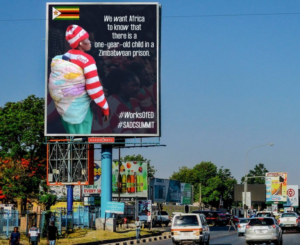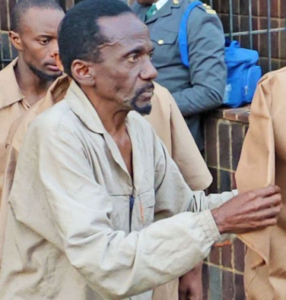ELECTRICITY CRISIS EXPOSES ZANU PF’S FAILINGS AND THE SUFFERING OF THE PEOPLE

Last year, the authorities responsible for providing electricity blamed long power cuts on low water levels in Lake Kariba. Ironically, Lake Kariba was built by the white settler government, which the current leaders claim to have fought against. It is barely past the 2022-2023 rainy season, so the excuse of low water levels no longer holds water. This situation reveals a tragic fact: the rural electorate, who mostly live in simple homes made of mud and poles, are largely unaware of the real impact on their lives, even though they depend on industries that are heavily affected by power cuts.
In simpler terms, the ongoing electricity crisis affects everyone, whether they live in homes with electricity or not. The main culprit is the tyrannical, authoritarian, illegitimate, parasitic, and corrupt ZANU PF. This party is known for violating and degrading the supreme law of the land and neglecting the welfare of the people, who are living in misery and abject poverty. The lack of prompt, affordable, and reliable service delivery has made the situation worse.
Imagine a peasant family with no electricity at home. The son has a young pregnant wife. The family depends on food aid from ZANU PF, which is distributed based on political loyalty. The daughter-in-law’s time to deliver arrives, but it is a preterm baby. The baby needs an incubator to survive, but there is no electricity to power it. The baby dies. This tragic story highlights the dire consequences of the electricity crisis.
Everyone needs electricity for various things, yet ZANU PF has ensured that there is none. The people, according to the violated and debased supreme law of the land, have the right to choose a government that represents their interests, rights, and freedoms. However, their rights are being trampled on by an electoral commission that is militarized, partisan, unprofessional, and compromised. This commission supports ZANU PF’s futile aspirations of a one-party state, which will leave the country literally in darkness.
If ZANU PF continues to rig elections, then the people can say goodbye to electricity and prepare for a return to the dark ages. The rural electorate, unaware of the full impact, will continue to suffer the most. The party’s corruption and negligence are evident in every power cut and every darkened home. This crisis is not just about electricity; it is about the basic rights and welfare of the people, which are being ignored and trampled on.
The electricity crisis is a clear sign of ZANU PF’s failures. The party has failed to provide basic services and has instead focused on maintaining power through corrupt means. The people are paying the price for this failure. Industries are suffering, the economy is struggling, and ordinary citizens are left in the dark, both literally and figuratively.
In conclusion, the ongoing electricity crisis in the country is a direct result of the corrupt and negligent practices of ZANU PF. The party’s focus on maintaining power at all costs has led to a situation where basic services are not provided, and the people are left to suffer. The tragic story of the peasant family and the preterm baby is just one example of the many ways in which the lack of electricity impacts lives. It is time for the people to demand better and hold those in power accountable for their actions.




This article seems heavily biased against ZANU PF, blaming them for every issue without acknowledging any possible complexities or external factors. It’s important to present a more balanced view rather than simply vilifying a single party.
While the article points out the problems with electricity and governance, it fails to offer any constructive solutions or alternatives. Criticism is necessary, but so is proposing viable ways forward for the country.
Your blog does a good job of highlighting the critical issue of the electricity crisis and its impact on everyday citizens. It’s essential to bring attention to these problems, especially when they affect vulnerable communities.
The use of extreme language like “dark ages” and “literally in darkness” seems exaggerated and sensationalist. Such rhetoric can create unnecessary fear and anxiety among readers instead of fostering constructive dialogue.